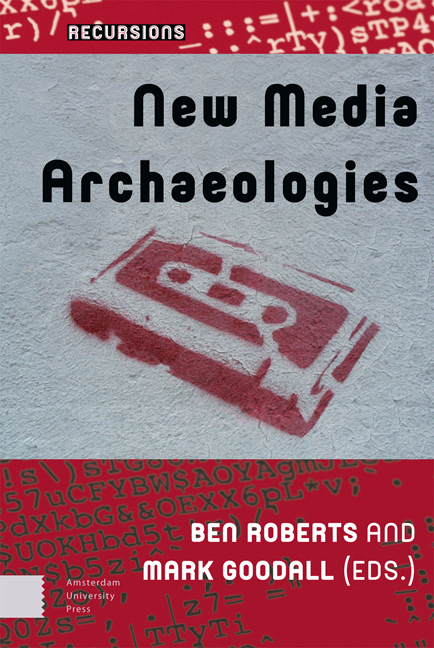1 - Media Archaeology as Laboratory for History Writing and Theory Making
Published online by Cambridge University Press: 21 November 2020
Summary
Abstract
As suggested in 1996 by Siegfried Zielinski, media archaeology should be considered as a “form of activity” (or Tatigkeit), as something that you do or execute. In this essay, I propose to think of media archaeology as a laboratory for history writing and theory making, by engaging with various hands-on media-archaeological methods, such as creative hacking, non-narrative modes of presentation, media bricolage and play. The central aim of such a media-archaeological enterprise is to rethink media's temporality, materiality and potentiality.
Keywords: Media Archaeology, Laboratory, Creative Hacking, Creative Thinking, Zielinski, Munari
Die Philosophie ist keine Lehre, sondern eine Tatigkeit.
— Ludwig Wittgenstein, Tractatus Logico-Philosophicus (1921)
More than two decades ago, Siegfried Zielinski already suggested thinking of media archaeology as a practice, or a continual performance, as something that you do or carry out. More specifically, in an essay published in July 1996 in CTheory as part of the special section on Global Algorithm, the German media theorist called media archaeology his ‘form of activity’, adopting Ludwig Wittgenstein's notion of Tatigkeit. In Zielinski's words, Wittgenstein ‘adhered to the premise that philosophy is not something to be sat out on a professorial chair, but should be a continuous action of clarification in its very own medium, language’ (Zielinski, 1996). As philosophy should consist of clarifying sentences (and not just of the sum of ‘philosophical sentences’), so media archaeology could be thought of as the ‘continuous action’ of excavation into the media's past(s) and future(s), that is, as the process of digging, discovering, rediscovering, rethinking, etc., rather than as the final results of such actions. In 1996, Zielinski tentatively defined media archaeology as an ‘approach […] which in a pragmatic perspective means to dig out secret paths in history, which might help us to find our way into the future’ (Ibid.).
This early media-archaeological definition/proposition by Zielinski resonates with two mottos formulated in the 1970s that are influential for my current research and my own take on media archaeology. The first motto is from American architect and systems theorist Richard Buckminster Fuller, as cited by Gene Youngblood in his 1970 book Expanded Cinema: ‘I think the way to see what tomorrow is going to look like is just to look at our children.’ (Youngblood, p. 45).
- Type
- Chapter
- Information
- New Media Archaeologies , pp. 23 - 44Publisher: Amsterdam University PressPrint publication year: 2019



